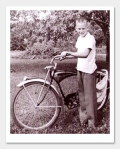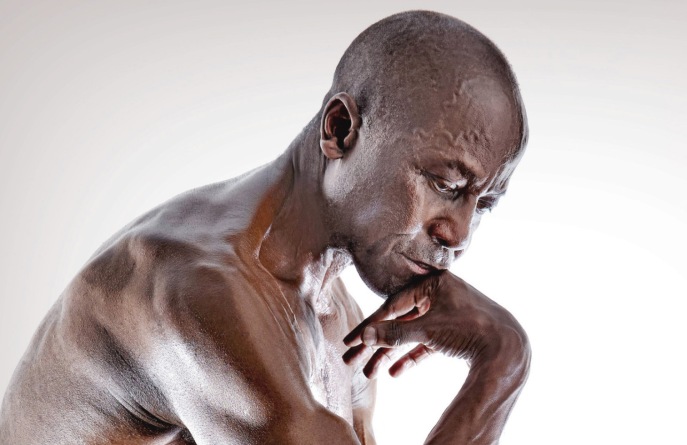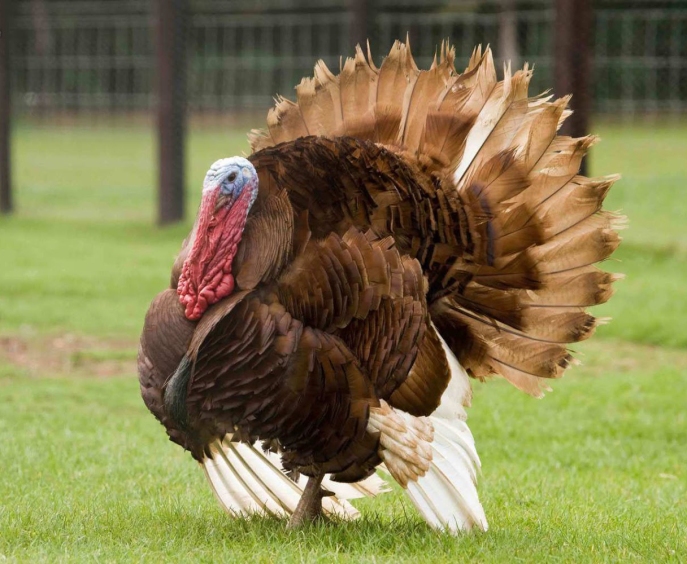VEGAN ATHLETES CHANGING THE PLAYING FIELD by Melissa Grant
Article contributed by reader Melissa Grant
By virtue of the extensive study and discovery of vegetarian and vegan diets and their various nutritional attributes, more and more people, particularly in the Western Hemisphere, are turning to these diets as a healthy alternative as well as for ethical animal welfare reasons. While for some, the vegan diet is instrumental in a particular and religious social setting, for others it is very much an individual choice, and while gaining popular ground in North America and Western Europe, it still faces numerous challenges and to some degree stigmatisation. Is cutting out red meat and especially fish, renowned for its wealth of nutrients and attributed to the good health of so many societies really a wise choice? Yet asking such a question, while valid in one sense seems redundant in another, and not just because studies have debated for and against the potentially harmful consequences of eating red meat.
Not only have several cultures survived on such diets for thousands of years, but some of the world’s top performing individuals who require an above average fitness level have turned to a vegan diet as an instrumental part of their regime. They have grown up in Western society and their genetic code is not, one may argue, optimised to diets which are commonly practiced elsewhere, yet for some vegan athletes, it is part of their key to success, proving that a vegan diet, when practiced effectively and conscientiously, not only leads to a good quality of life but gives the human body the sustenance it needs to be a high performer.
Of course, this means that in several areas, some additional compensation has to be done where the required intake of protein, iron, and vitamin B12 can be challenging to come by outside of meat. But as several athletes are able to attest, it definitely isn’t impossible.
Olympian Heroes
Due an impressive performance in the 2012 Olympic Games in London, Britain has seen an immense renewed interest in professional and amateur sport as more and more people are inspired to get out and get active, in part thanks to the athletes who helmed the nation’s impressive 65-medal tally. The first to begin this tally was silver-medallist Lizzie Armistead, a long-time vegetarian (since the age of 10, basing her choice on not eating animals) who championed a demanding 87-mile road cycling race. Though Lizzie is not entirely vegan, her example suffices because she gains the majority of her nutrients from the very stuff which grows out of the soil, and is yet another athlete from a long-line of Olympians to make this decision. Australian swimmer Murray Rose, an avid vegan aptly nicknamed “Seaweed Streak” won four golds in the 1956 and 1960 Olympics, and American sprinter Carl Lewis improved his already substantial tally (four gold in 1984) with his 1991 victory at the 100m World Championships which he hailed as “his greatest race”, completed after turning vegan.
Muesli Equates to Muscle?
Yet veganism is perhaps an unsurprising lifestyle for Olympians participating in endurance sports, more open-minded in the sense that athletes, while muscular, do not carry around a lot of brawn. What of the bulkier types, participating in sports such as American football and wrestling? Meet Jim Morris, winner of the 1967 “Most Muscular Award” in New York.[i] While Jim did eat meat during this time, he made the decision years later to improve his health by changing diet. “It was only after I retired from competition in 1985 that I started considering my health and eliminated what I had over the years identified as the cause of my digestive, respiratory and joint problems, namely all animal sources,(beef, fowl, dairy, pork and fish). I continued having fish on rare occasions as my “treat”.” Jim continues to body-build, and has been named as PETA’s “most senior pin-up” advocating not only the rights of animals but several studies into the nutritional values of vegan diets, proving that meat isn’t necessarily instrumental in physical well-being.
Another popular athletic legend is the recently-retired NFL football player Tony Gonzalez, former tight end for the Atlanta Falcons and Kansas City Chiefs. Gonzalez is esteemed for his impressive record for most single season receptions and most touchdowns by a tight end, and most career receptions and reception yards by a tight end. Though Tony’s diet would eventually revert back to eating chicken and fish, he owes much of his career-fitness to trying alternative diets.
Strongman Patrick Baboumian, marathon champion Brendan Brazier and fighter Mac Danzig are also high-performing athletes who have switched to veganism, and credit much of their success to the diet. Attributing nutrition not only to fuelling training but aiding in recovery, it turns out that plant-based meals are the way forward and are substantial enough to allow the body to build up a healthy mass, even reporting that after switching to these diets, they felt better overall. This goes against the grain of popular public belief that such diets are unsustainable for an athlete, but recent studies in this field are providing more and evidence that this isn’t necessarily the case, and having real-life examples can only help as well.
Changing Perspectives
In 2012, Gretchen Reynolds of the New York Times “Well” blog consulted with experts David C. Nieman, a professor of health and exercise science at Appalachian State University, D. Enette Larson-Meyer, an associate professor of human nutrition at the University of Wyoming, and Nancy Clark; all three are very active individuals, participating in marathons and other competitive sports. All three concluded that yes, vegan and vegetarian diets are possible, using the example of vegan distance runner Scott Jurek as a case in point. Most specifically, they addressed what has been a long-time question for athletes regarding getting enough intake of vitamin B12 which is plentiful in red meat, stating that now, many cereals and snacks are supplemented with the crucial mineral.[ii]
As more and more people are learning about the benefits of vegan diets and discovering that not only can they enjoy a greater quality of life, but also achieve some of their most ambitious goals with the aid of high-profile public figures who have embraced the lifestyle and found their own lives more fulfilling because of it, veganism is becoming an accessible and healthy option for aspiring athletes and will continue to do so for years to come.
[i] Greatveganathletes.com “Jim Morris, vegan body builder.” Accessed 3 April, 2014.
http://www.greatveganathletes.com/vegan_athlete_jim-morris-vegan-bodybuilder
[ii] Well.blogs.nytimes.com “Can Athletes Perform Well on a Vegan Diet?” Accessed 3 April, 2014.
http://well.blogs.nytimes.com/2012/06/20/can-athletes-perform-well-on-a-vegan-diet/
Photo of Jim Morris © PETA. PETA.org
THANKSLIVING IS COMING by Rae Sikora
Thanksgiving is fast approaching and many progressive and socially conscious types have already ordered their “organic,” “pasture raised” turkeys, allowing them to eat the traditional meal without the guilt of supporting factory farming and chemical laden agriculture. However, most good intentioned people won’t look any further to discover the truth behind their meal.
Organic standards do not include regulations about the treatment of the animals.
A friend and I visited a local, organic farm with a good reputation for environmental and humane standards. The farm’s reputation seemingly held true. Their 1,000 birds are raised in large outdoor hoop-houses with green pasture surrounding. Their feed is organically grown on the farm and hangs from feeders accessible to any of the birds who are able to walk to them. They even slaughter the birds right on the farm, avoiding transport to a large slaughterhouse facility.
Yet even under “better than average” conditions, the turkeys suffer. Most people ordering organic birds assume they are not genetically bred for weight gain. Organic and non-organic turkeys are bred to be slaughter-ready at 18 weeks. They are so obese that their legs cannot handle the weight of their bodies. In fact, many birds are completely lame by two months.
Some of the turkeys we saw were stuck in the straw, unable to get up, and struggling to make it to food and water while healthier birds pecked at them. Others, already dead, were being removed.
Our tour guide, the farm manager of 11 years, was kind and open with us. He told us he was proud of the facility and happy to show us around. In the slaughter building we were introduced to a worker he nicknamed “the killer.” The manager chuckled and said they actually, “refer to him as the ‘harvester.’” I asked the young harvester if his job was difficult. Thoughtfully he replied, “It was hard at first, but it gets easier.”
They then showed us the procedure. The birds are “gently” pushed into wall mounted funnels head first and upside down. With their heads hanging below an opening at the base of the funnel, the “harvester” slices the major arteries on the bird’s neck. A bucket catches the blood below. In the words of the harvester, “I slice with a clean hundred dollar surgical knife. I am careful not to cut the airway. We need them alive, breathing and bleeding to drain all the blood out or it gets too messy in the next step. It is very fast. It only takes two minutes. They are breathing the whole time and their legs are kicking.”
I stood there struck by his words, “only two minutes.” I recently led a workshop where I wanted people to guess how long a minute is. Everyone closed their eyes. I told the participants to open their eyes and raise their hands when they thought a minute was up. I timed them. Almost everyone had their eyes open and hands raised in about 30 seconds. A minute is a long time. Two minutes of hanging upside down with your major arteries sliced open and bleeding is a really long time.
After touring the entire facility, from pasture to the freezer filled with hundreds of tidy packaged birds, we walked slowly back to my car feeling distressed by our experience. I have met some “used-to-be vegetarians” who have turned to a meat diet again because of the availability of animal products labeled “humane.” Everyone who chooses to eat animal products labeled “humane”, “cage-free”, “organic” or “free-range” should visit the facility providing their meat, dairy or eggs. Anyone wanting to live compassionately would not support these industries. They would hopefully realize that these labels give people permission to turn their backs on the violent reality of eating these foods. The creation of all animal products involves exploitation for profit including confinement, social deprivation, mutilation, reproductive manipulation and pre-mature death.
Make this Thanksgiving a Thanksliving by modifying tradition to include non-violence toward all beings and caring for the earth and your own health.
THE ANGRY VEGETARIAN STRIKES BACK – GUEST BLOG POST by Michael Bosanko
My name is Michael Bosanko (aka The Angry Vegetarian), and I have a problem. Vegans. Or more accurately, the ‘ethic’ argument. Before I explain, I must first confess that even though I am a vegetarian, I am probably more close to vegan than most vegetarians, and the dairy I consume is obtained from free-roaming animals that are not destined for the slaughter house once they have served their purpose. I do not eat eggs, or products that contain eggs. I do not wear leather. I do not keep pets.
How far do you take your ethics?
In my opinion, a true full-on ethical vegan will not be reading my comments, because they will be living off the grid. So… as a vegan, what’s your stance on medicine? All medicine will have, at some point, been tested on animals. I am lead to believe there is no exception to the rule here. ALL MEDICINE. TESTED, ON ANIMALS.
What about the stuff you use to wash your hair with, or brush your teeth? Companies can ‘proudly’ boast that their particular product has not been tested on animals … however, what about each active ingredient used in said product? Can we guarantee these individual ingredients/components haven’t been tested on animals?
Let’s now look at the cereal you eat or the vegetables you consume … can you guarantee none of them have faced pesticides or insecticides? When you want to prolong the life of food, do you freeze it? If so, where was your freezer made? Does the company have strong ethical policies when making these electrical goods?
Do you have pets? If yes, then I ask ‘why’? Is the pet bound to your command/whim? Is the pet allowed to be free? Do you keep fish in a tank? If so, why? If we should not interfere or intervene or exploit animals, then is it only right that, of a particular species fails to breed, then we should allow nature to make its natural selection, rather than house near-extinct species in a ‘zoo’, and forcefully encourage them to breed?
Now … you are probably at that point where you’re thinking “What the feck is this strung-up dude on about???!!??”… The truth is, there is no point, other than if you’re a vegan, and you want to impose/impregnate your values onto non-vegans, then please … please … please … please question the very fabric and foundation of your lifestyle choice, because trust me, there will be flaws … many flaws… And when you iron those flaws out, and become the perfect human being, you will have my full, undivided and unconditional attention.
PHOTO: Tiki – Version #2 Unedited photograph. Copyright: Michael Bosanko
BABY VEGAN – FINDING YOUR LINE by OLI ANDERSON
I found going Vegan to be incredibly easy. No, really, I did. I started off as a Vegetarian for most of my youth, but when I married a meat lover I went on to eat meat. When I did become a Vegetarian again I found myself consuming less and less dairy products without paying attention. So making the leap was pretty simple to do. After all, what was I really losing?
But one thing I have found some difficulty with is the label. I don’t know if you have noticed, but for much of the Vegan community there isn’t much of a consensus on what isn’t a Vegan. There is plenty of information on what makes one: someone who doesn’t eat or use anything that comes from a living, feeling creature. So no meat, dairy, honey, leather, etc.
This seems so straight forward at the face of it, but what happens when you fall below the standard? What are you called then?
The Invisible Line
Not too long ago I came across a series of tweets from a very distraught young woman. She said that she just found out something she ate once a week was meatless, but contained some powdered milk product. I remember one of the updates clearly:
“Turns out I was never #Vegan, can’t stop crying. #Gutted.”
From what I can tell she had done everything else right. She gave up all animal products consciously, bought with the purpose of being cruelty free, and campaigned for awareness (based on other tweets in her feed).
Did the fact that she was accidentally eating something every once in awhile with milk really mean she wasn’t Vegan?
This, folks, is what I like to call “the invisible line”. It is invisible because no one actually knows where it is, or where it is placed. Just that it exists, and that if they cross it they risk being seen as “less Vegan” than the rest.
Finding Your Line
It is very important as a Baby Vegan not to feel intimidated or bullied by this unseen menace. Because in the end, the only person who can decide where that line is placed is you. You, the person who has made the courageous choice to lessen your impact on the environment, to not be a part of animal cruelty, and to do something amazing for your body’s health.
My own line is not the same one many people are going to take. I am meat free all of the time. But I am dairy-free only 95% of the time. Does that make me less of a Vegan? Well, maybe to some people, and I admire those who are able to keep themselves 100% animal product free all the time. But I am not ashamed that I am not one of them, because I see the good in the choices I make almost all of the time.
That is why I found it so easy to become a Vegan. Because even though I am making a massive choice in how I live, eat, shop and look at the world, I’m doing it the way that works for me. I am finding my line.
Don’t be afraid to find your own, Baby Vegans.
Oli Anderson is a freelance writer and owner of The Wannabe Vegetarian. She is new to the lifestyle, but eager to promote both cruelty free living and environmental resource reduction. She can be contacted at TheWannabeVegetarian@gmail.com.
Q@A WITH KRISTIN LAJEUNESSE OF “WILL TRAVEL FOR [VEGAN] FOOD”

Kristin is a travel and food enthusiast originally from NY. She’s been living out of a van and off of donations for more than a year now, on a vegan foodie road trip throughout the US!
I was lucky enough to spend time with Kristin Lajeunesse of “Will Travel for [Vegan] Food” at this year’s Vegetarian Summerfest and learn both about her consulting business as well as her vegan travels across the U.S. As an aside, when you have a few minutes, you really should watch her new music video.
During her excellent presentation at Summerfest, she highlighted the value in asking experts and other bloggers to contribute to your own blog as a guest and this Q&A session seemed like a great way to try it out.
MV: You spent over a year driving across the U.S. stopping at every vegan restaurant along the way. As a vegan traveler myself, I am always challenged in the smaller towns and villages in finding great vegan food. Where would you say were the most surprising and remote locations you found a great vegan meal?
KL: One of the most pleasant surprises was Memphis, TN. At the time there were only two vegan establishments – one raw juice bar and a diner-style establishment set up in what used to be a dive bar, it seemed. Both places were fantastic. The juice bar provided a healthy start to my two days in Memphis and the the two meals I had from the Imagine Vegan Cafe (the diner-style eatery) were out of this world.
There’s also a great raw restaurant in Ketchum, ID. I remember this one very well because it seemed like it was in the middle of nowhere. Or at least, the drive from Missoula, MT to Ketchum was definitely a unique one (click here to read about the scary drive my mom and I had on our way to Ketchum)
MV: You mention Vedge in Philly as your “favorite” vegan restaurant (primarily because of the cheesecake), do you find yourself looking for food that mimics non-vegan foods or more innovative fare?
KL: If it was vegan I would eat it, regardless. At least, that was my mentality during the road trip. As soon as I finish eating my way through NYC (10 more to go!) I’m planning to go high raw and cleanse a bit – avoiding the meat and dairy substitutes. After nearly 2 years of all- and everything-you-can eat, my body needs a break. 🙂
MV: Which cities did you find having the most creative options in vegan dining and where did you find the service to be the most accommodating and knowledgeable?
KL: The most creative foods I found were in and around Los Angeles and Portland, OR. By far the food on the west coast is more interesting and delicious. In terms of knowledgeable, the ones that you’d probably think of are on par – like NYC, LA, and Portland (OR). Austin, TX was great too in terms of those who knew of veganism.
MV: As someone who is both vegan AND gluten-free, do you find that sometimes restaurants confuse the two? And, where along your travels did you see the widest array of gluten free and vegan options?
KL: Not being gluten-free myself I can’t say that I took too much notice to this. But in general I don’t believe many people (who are veg or not) confuse the two. Gluten intolerance is wide spread and quite well-known. I wouldn’t say that it’s associated with or that people in general believe it goes hand in hand with one another. Regarding the options – again, since I’m not gluten-free I’m sorry to say I didn’t really take note of where there were more or less gf options.
MV: Did your travels take you to Ithaca, NY? While the Finger Lakes has numerous wineries, I often feel as though there aren’t that many vegan restaurants (Strong Hearts Cafe in Syracuse comes to mind). What were the most challenging areas of the U.S. to find good food?
KL: My travels did not take me to Ithaca but I did stop at Strong Hearts in Syracuse – and Lil Buddha in Albany, and X’s to O’s Bakery in Troy.
MV: This August (27) will mark your 7-year Veganniversary of when you first became vegan, and the 2 year mark of the start of your road trip, how are you planning to celebrate and can I get an invite to attend?
KL: In order to celebrate the end of what has become a truly life-changing journey, I’m hosting a party in Manhattan on the evening of August 22nd, from 7-10PM. All event proceeds are going to one of my favorite non-profit organizations, Woodstock Farm Animal Sanctuary. There will be live music and dance performances, custom cocktails, it will be catered by Chef Jay Astafa, The Vegan Zombie crew will be reporting “live” from the red carpet, and there will be a bangin’ silent auction, along with a few surprises and special announcements. Of course, you’re invited, Eric! 🙂
For more info, check out the events website, here: http://events.wtfveganfood.com/
MV: Thank you, Kristin for inspiring others to take the (vegan) road less traveled!
GLUTEN FREE IS NOT VEGAN AND VEGAN IS NOT A DIET
BY GARY LINDSTROM, Guest Blogger

A young Gary Lindstrom in Rockwell City, Iowa. Years before gluten intolerance and veganism existed as we know them today.
I am not a vegan but some of the people I love the most are.
I spent 16 years not eating meat or meat products but I was not very careful. After that I was diagnosed with Celiac Disease (intolerance to Gluten which is found in Barley, Rye, Oats and Wheat) so I decided to go back to a more normal diet and began eating meat and meat products again. Sometimes even one cross is difficult to bear.
When I was trying to stay on a plant based diet I would eat large bags of bagels and huge amounts of flour tortillas. For a while I thought that I had simply overloaded my system but much later I found that Celiac Disease is congenital and it is like insanity, you get it from your family.
I was born and raised in an agricultural community in Iowa, spent four years in the Air Force, several years in the New York City Police Department before I moved to Colorado for jobs in Law Enforcement and in Education as a College Professor.
For twelve years I was a County Commissioner and another four years as a Colorado State Representative. I say all of that because as a Commissioner and State Representative I was served, on average, three free meals a day none of which I could eat. Imagine being asked to attend a dinner with former President Bill Clinton and not being able to eat anything. That actually happened to me.
I felt sorry for the poor wait staff. Most of the time I was offered extra salad as an alternative.
I was at a picnic last summer in honor of the local LGBT (Lesbian, Gay, Bisexual and Transgendered) community and sat next to a very interesting and articulate waiter from a local restaurant. He asked why I was not eating anything and I had to tell him that I was a Celiac. He responded by telling me that he thought that all “Gluten Free” and “Vegan” customers at his restaurant were phonies and that they had only assumed those mantels to get attention. He did not believe that anyone had any food allergies or wanted to not eat animal products on purpose other than to draw attention to themselves.
Nice segue for me to try to explain my allergy and the choice that many make to not eat meat products. I had to give him the ten minute presentation about Villi in the intestines that normally shed an enzyme that breaks down gluten. When the Villi is not there serious problems for the Celiac can occur. I went on to explain that Vegans make a conscious decision not to eat meat or a meat products because a plant-based diet is so much healthier for everyone. After about thirty minutes of questions and answers I think he walked away a changed man.
Being Vegan is not a decision, it is a lifestyle. It is not as if you decide to drive to Miami one weekend. It is as if you change your diet and your life in order to protect yourself from illness and an early and untimely death in some cases.
I think that it is very selfish of some people to continue in a life of taking chances with their diet and not considering their friends, family and other loved ones. In some respects it is a decision that leads to death not unlike suicide which I believe is a very selfish act. “I am not happy so I will kill myself and not consider all of the innocent people who will be impacted by my death.”
Eating yourself sick is much the same decision. You might say, “It is easy for him to say because he is not a vegan.” Good point. But even that should not keep you or anyone else from trying to change. The next time you meet a Vegan or anyone else who has made positive changes in their diet for better health let them know that you are proud of their decision. Also let them know that you understand that making those changes are not easy.
Gary was born and raised in a small farming community in Northwest Iowa. Fifty three years ago he enlisted in the Air Force where he served as an Intelligence Specialist and Staff Writer. He eventually joined the New York City Police Department in the 1960s and was a patrolman and Staff Writer for the NYPD Magazine. He moved to the Colorado High Country and continued in law enforcement. He wrote a weekly opinion column for many years in the local daily paper. He was elected County Coroner, County Commissioner and Colorado State Representative. He has five college degrees and is currently a college professor at three colleges and universities in Colorado. He has five children (one of which is The Meaty Vegan), eight grandchildren and one great granddaughter.





Hi. My name’s Michael Bosanko (aka The Angry Vegetarian), and I have a problem. Vegans. Or more accurately, the ‘ethic’ argument. Before I explain, I must first confess that even though I am a vegetarian, I am probably more close to vegan than most vegetarians, and the dairy I consume is obtained from free-roaming animals that are not destined for the slaughter house once they have served their purpose. I do not eat eggs, or products that contain eggs. I do not wear leather. I do not keep pets .. How far do you take your ethics? In my opinion, a true full-on ethical vegan will not be reading my comments, because they will be living off the grid. So… As a vegan, what’s your stance on Medicine? All medicine will have, at some point, been tested on animals. I am lead to believe there is no exception to the rule here. ALL MEDICINE. TESTED, ON ANIMALS. What about the stuff you use to wash your hair with, or brush your teeth? Companies can ‘proudly’ boast that their particular product has not bee tested on animals… However, what about each active ingredient used in said product? Can we guarantee these individual ingredients/components haven’t been tested on animals? let’s now look at the cereal you eat, or the vegetables you consume… Can you guarantee none of them have faced pesticides or insecticides? When you want to prolong the life of food, do you freeze it? If so, where was your freezer made? Does the company have strong ethical policies when making these electrical goods? Do you have pets? If yes, then I ask ‘why’? Is the pet bound to your command/whim? Is the pet allowed to be free? Do you keep fish in a tank? If so, why? if we should not interfere or intervene or exploit animals, then is it only right that, of a particular species fails to breed, then we should allow nature to make its natural selection, rather than house near-extinct species in a ‘zoo’, and forcefully encourage them to breed?
Now.. you are probably at that point where you’re thinking “What the feck is this strung-up dude on about???!!??”… The truth is, there is no point, other than if you’re a vegan, and you want to impose/impregnate your values onto non-vegans, then please.. please, please, please question the very fabric and foundation of your life-style choice, because trust me, there will be flaws… many flaws… And when you iron those flaws out, and become the perfect human being, you will have my full, undivided and unconditional attention…
LikeLike
I will post this later today. For some reason, I can’t cut and paste from my phone!
LikeLike
If scientists could prove, without a shadow of a doubt, that plants could feel ‘pain’, what would you do? There is of course, mechanisms in place that will guide a plant to heal itself if cut or scarred. Does a lack of a central nervous system/brain dictate whether something feels pain or not? Just because we cannot measure something, or ‘think’ we have a full understanding, it does not necessarily mean we are right.
Do fruitarians have the right idea, thus rendering the vegan/vegetarian without proper moral standing? Do some fruitarians view vegans the same way some vegans view veggies, the same way some veggies view omnivores, the same way some omnivores view cannibals?
LikeLike
I have been eating (and drinking) Kale like it’s going out of fashion… I am about to make kale crisps…
LikeLike
Some people like eating blood that’s been lovingly drained from the slit throat of a pig. Other people prefer the inhumane act of killing vegetables – Eric, and other green botherers, check out my Vegan Black Pudding…
LikeLike
I guess like any category we box ourselves into as humans, the are “50 Shades of Veganism”. Some tend to be uber dogmatic and militant while others are just trying to bring a little more health to ourselves, our families and the planet. So my fellow animals that roam the earth know that I won’t eat you or anything that comes from you 🙂 Good post….
LikeLike
Vegans Are Tastier
Powerful new animal rights novel discusses the way in which humanity treats animals and depicts what it might be like to walk a mile in their hooves.
KAPOLEI, Hawaii – In an apocalyptic thriller that exposes animal cruelty and the hypocrisy of eating meat, author Joe DeMarco paints a picture of a world brought to its knees by its craving for beef. Take an evolutionary journey through time and space in an unexpected animal rights book that includes branding, hunting, spanking, torture and cannibalism in Vegans Are Tastier (now available through AuthorHouse).
Separated into 11 recordings (short stories) with intermissions (one-page short stories between every story) from The Book of Soulless Animals, a pseudo book within the book, DeMarco takes us through what he calls the Human History of the Schism Between Carnivores and Omnivores. In a not-so-distant future a prion disease is caught by most cattle, and humans that consume their flesh contract this shaking sickness. It is the incubation period of 10-20 years that makes this Mad CuuD Disease so dangerous. The book shows us recordings of desperate Homo sapiens during this tumultuous time period. The underlying theme in all stories is animal rights, as we “watch” a human get branded, men hunt for a tiger, a teenager get cleaned like a chicken and finally a philosophical discussion about cannibalism.
About the author
Joseph DeMarco was born in New York City. He lived most of his life in Buffalo, NY and he now teaches seventh grade on the island of Oahu, Hawaii. He is the author of the novels Plague of the Invigilare, The 4 Hundred and 20 Assassins of Emir Abdullah-Harazins, At Play in the Killing Fields and Blind Savior, False Prophet.
http://www.amazon.com/exec/obidos/ASIN/1456748297/authorsdencom
LikeLike
I think this is one of the most important information for me.
And i am glad reading your article. But want to remark on few general things, The web site style is ideal, the articles is really nice : D.
Good job, cheers
LikeLike
Just wish to say your article is as astounding. The clarity in your post is
simply cool and i can assume you are an expert on this subject.
Well with your permission let me to grab your feed to keep up to date with forthcoming post.
Thanks a million and please keep up the enjoyable
work.
LikeLike
I believe this is among the such a lot important information for me.
And i’m glad studying your article. But want to remark on some general things, The website taste is ideal, the articles is in reality great :
D. Excellent activity, cheers
LikeLike
I hardly drop remarks, however I read some of the remarks on GUEST BLOGGERS BLOGGING | Meaty Vegan. I do have 2 questions for you if you do not
mind. Is it only me or does it give the impression like a few of
the responses look as if they are coming from brain dead folks?
😛 And, if you are posting on other online sites, I would like to follow anything new
you have to post. Would you post a list of the complete urls of all
your public sites like your twitter feed, Facebook page or linkedin profile?
LikeLike
I’ve been surfing on-line more than 3 hours these days, yet I by no means discovered any fascinating article like
yours. It’s beautiful price enough for me. In my view, if all webmasters and bloggers made just right content as you probably did,
the internet can be a lot more useful than ever
before.
LikeLike